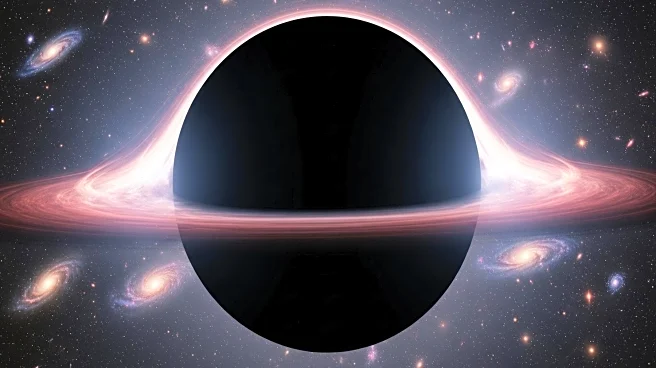What's Happening?
Astronomers using data from the James Webb Space Telescope have identified what may be the oldest black hole in the universe, potentially formed less than a second after the Big Bang. This discovery, detailed in a study awaiting peer review, suggests the existence of primordial black holes, which are hypothesized to have formed in the universe's earliest moments. Unlike typical black holes formed from collapsing stars, primordial black holes could have originated from dense regions in the immediate aftermath of the Big Bang. The findings challenge existing theories about black hole formation and the evolution of the universe.
Why It's Important?
The discovery of a primordial black hole could significantly alter our understanding of cosmology and the formation of the universe. If confirmed, these black holes might explain the existence of ancient, massive black holes that appear too large to have formed through conventional means. This could also provide insights into dark matter, as primordial black holes are considered potential candidates for dark matter. The implications extend to the fields of astronomy and physics, potentially leading to new theories about the universe's structure and evolution.
What's Next?
Further observations and studies are needed to confirm the existence of primordial black holes. Upcoming advancements in gravitational wave detectors could provide more definitive evidence, allowing scientists to detect black holes across the universe. The ongoing debate among cosmologists will likely continue as more data becomes available, potentially leading to a paradigm shift in our understanding of black hole formation.









